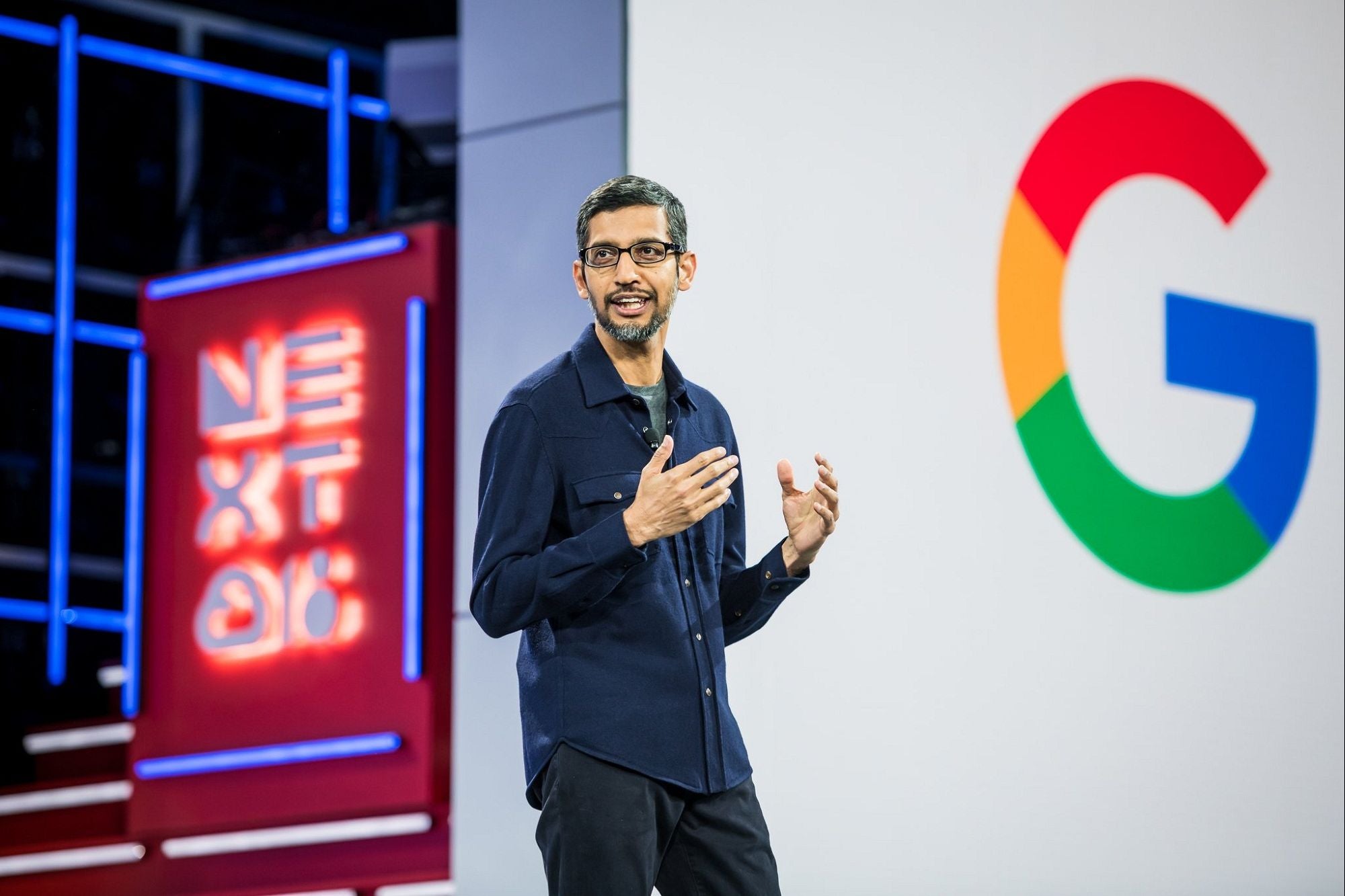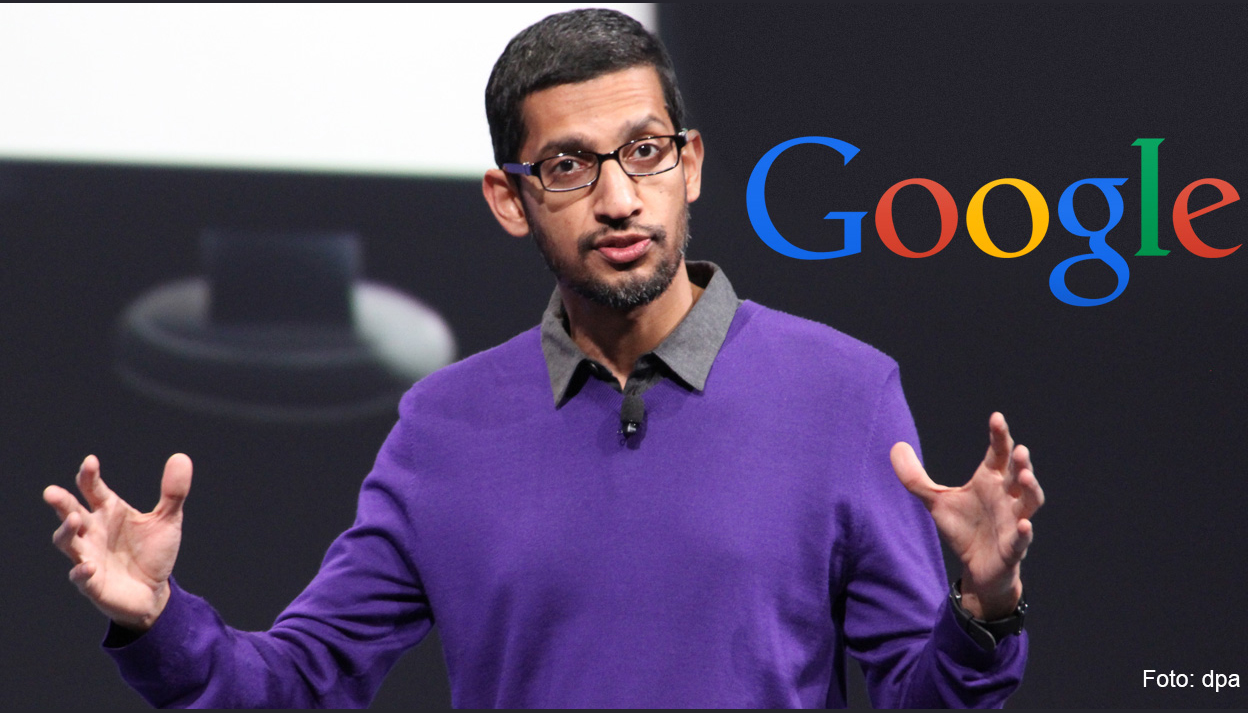Sundar Pichai, the CEO of Google, is known for his calm, measured leadership and his ability to guide one of the world’s most influential companies through the ever-changing digital landscape.
Under his stewardship, Google has evolved from a search engine into a global powerhouse that controls vast swaths of information. With platforms like YouTube, Google Search, and Android, Pichai has shaped the way billions of people interact with the internet.
However, some conspiracy theorists believe that Pichai’s role goes far beyond just managing a tech giant—they suggest that he is at the center of a massive cover-up involving UFOs and extraterrestrial life.
According to these theories, Google’s immense control over the world’s information is being used not only to enhance services but to suppress crucial evidence of alien contact and UFO sightings, keeping humanity in the dark about the existence of extraterrestrial life.
At the heart of this theory is Google’s unparalleled power in the digital world. Google’s search engine processes billions of queries every day, controlling what information is easily accessible to the public.
The company also controls YouTube, the largest video-sharing platform, where millions of videos are uploaded every day, ranging from news and educational content to personal vlogs and conspiratorial claims.
To conspiracy theorists, this level of influence over the flow of information is too significant to be accidental. They argue that Google, under Pichai’s leadership, is actively curating what the public sees and hears, particularly when it comes to topics like UFOs and alien contact.

According to these theories, Google is more than just a company—it is a key player in a global effort to suppress information about extraterrestrial life.
Theorists claim that Google is deliberately hiding evidence of UFO sightings and other paranormal phenomena, removing or burying content that might reveal the truth about alien encounters.
The most concerning aspect of these theories is the idea that Pichai is at the helm of this effort, knowingly allowing Google’s immense power to be used as a tool for deception.
While Google has publicly committed to transparency and the responsible handling of information, theorists believe that this is merely a façade, concealing the company’s true role in suppressing knowledge about extraterrestrial life.
One of the most commonly cited pieces of evidence for this theory is Google’s search engine results. Google’s algorithms determine which content appears at the top of search results, and conspiracy theorists argue that this gives the company the power to shape public perception by controlling which narratives are prioritized.
When users search for terms like “UFO sightings” or “alien contact,” the content that appears at the top of the results is often mainstream, skeptical, or dismissive of the idea that extraterrestrial life exists.
Theorists argue that this is not a natural outcome of algorithmic ranking but rather a deliberate attempt to suppress information that challenges the official narrative.

According to this view, Google’s algorithms are designed to bury or downrank content that promotes theories about UFOs or extraterrestrial encounters, effectively keeping the public unaware of the truth.
YouTube, as a subsidiary of Google, plays a critical role in this information control effort. With over two billion monthly active users, YouTube has become a primary platform for sharing videos on a wide range of topics, including UFO sightings, alien encounters, and government cover-ups.
Conspiracy theorists claim that Google, through YouTube, actively censors videos that reveal or discuss UFO phenomena. They point to the removal or demonetization of videos that feature unexplained aerial phenomena or other controversial content as evidence that Google is suppressing the truth about extraterrestrial life.
By removing or downranking these videos, YouTube can effectively control the narrative surrounding UFOs, keeping them relegated to the fringes of the internet while allowing more mainstream, dismissive content to flourish.
The idea that Google is working to suppress evidence of UFOs and alien contact is further supported by the company’s close ties to government agencies and intelligence organizations.
Google has long been a contractor for the U.S. government, providing services ranging from cloud computing to advanced data analytics. The company’s involvement with government agencies, particularly those in the defense and intelligence sectors, has raised suspicions among conspiracy theorists.

They argue that these relationships are not just about providing commercial services but are part of a larger effort to control and manipulate information. Some even suggest that Google’s role in suppressing UFO evidence is part of a covert agreement between the company and government officials to prevent public panic or disclosure of extraterrestrial contact.
One of the most intriguing aspects of this theory is the alleged connection between Pichai and the secrecy surrounding UFOs. Pichai, who has been CEO of Google since 2015, is often seen as the embodiment of corporate control, overseeing a company that has access to vast amounts of personal and global data.
His calm, professional demeanor and lack of public controversy have allowed him to operate with relative freedom, but theorists argue that this very lack of scrutiny makes him the perfect figure to lead a covert operation of such magnitude.
If the theories are to be believed, Pichai’s role in controlling the world’s information is not just about business or profit—it’s about maintaining a carefully constructed narrative about extraterrestrial life.
The growing number of declassified UFO reports from government agencies, including the Pentagon’s release of videos showing unidentified aerial phenomena (UAP), has only fueled these conspiracy theories.
While these revelations have brought UFOs into the mainstream conversation, theorists argue that the government’s disclosures are just a small part of a larger effort to prepare the public for eventual alien contact.
Google’s control over information, they claim, allows the company to shape the narrative around UFOs and extraterrestrial life, ensuring that the public is conditioned to accept whatever information is eventually released.
Theorists believe that this gradual disclosure is part of a larger plan to introduce the idea of alien life to humanity in a controlled manner, with Google playing a central role in managing the flow of information.

The most troubling implication of this theory is the idea that Pichai and Google are working to keep humanity in the dark about extraterrestrial life, not out of concern for national security, but to maintain control.
If extraterrestrial beings are already in contact with Earth, theorists argue, Google’s role in suppressing this information could be part of a larger agenda to keep the public uninformed and docile.
By controlling the information that is available to the masses, Google, under Pichai’s leadership, could be ensuring that only a select few are privy to the truth about UFOs and alien encounters.
In this view, the true power of Google is not just in its ability to search the web or display ads—it lies in its ability to control what people know, when they know it, and how they understand it.
While there is no definitive proof to support the theory that Sundar Pichai is actively involved in a UFO cover-up, the idea of Google’s control over information and its role in shaping public perception raises important questions about the power of tech giants in the modern world.
As Google continues to expand its reach into every corner of life, the potential for abuse of power becomes increasingly apparent. Whether or not Pichai is suppressing evidence of extraterrestrial life, the role of tech companies in shaping the flow of information and controlling narratives is a topic that deserves scrutiny.
In a world where information is everything, those who control the narrative hold the keys to reality itself—and that, according to some, may be the true purpose of Google’s vast empire.